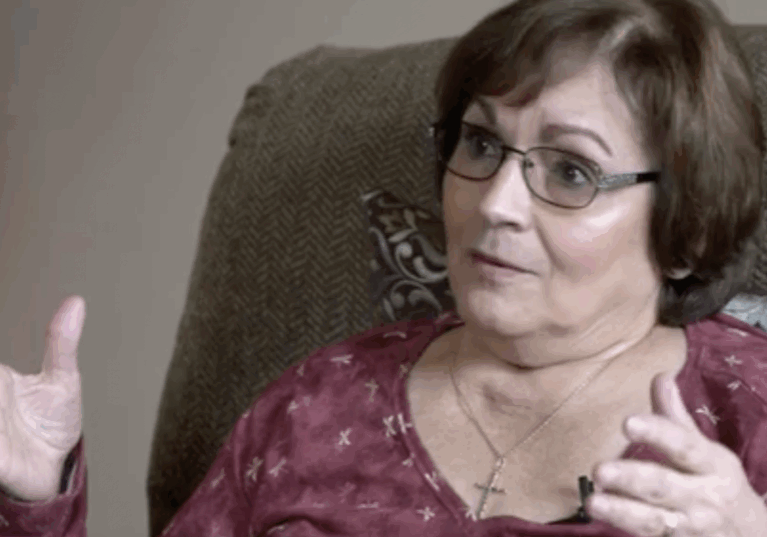I Wanted to Work

“He comes back… and he said, ‘I have a permanent position for you.’”
Edited by Nick Ladeau.
Transcript for I Wanted to Work
I started looking for a job. You know, I worked in Germany. I wanted to work. You know, I liked to bring in money. I never wanted to be like my mom and dad.
I was about twenty, twenty-and-a-half-years-old, and I put an application at U.S. Steel Gary Works. And the guy said, “Well, there’s no openings.” He said, “But I’ll let you take the typing tests.” I said, “Okay,” and he sat me in front of an electric typewriter. Well, when I went to school, they hadn’t showed us how to type on an electric typewriter. So I told him that, I said, “Look, I’ve really never used an electric typewriter. I could try.” He said, “Well, you want to do it on the manual?” And I said, “Yeah, sure.” Did that on the manual, hit 80-words-per-minute. I was a fast typist. I knew that. And he said, “Wow.” He said, “Okay.” He said, “I don’t have an opening right now, but I’m gonna keep you in mind.” I said, “Okay, thank you.” I walked out saying, “Yeah, right.” Two days later, he called me. And he says, “I have an opening for you.” And I said, “Great.” And he says, “It’s midnights.” And I said, “You know, I really need to work, but I can’t work midnights, I have a little girl.” I said, “And I hate to turn it down. Because I know you might never call me again.” He said, “No, I promise if there’s another opening, it’s going to be yours.” And a few days later, I’m telling you, the good Lord was looking out for us, a girl had an accident. So now they needed someone in one of the offices. And it was unfortunate for her. But it was fortunate for me because that was one step in the mill.
So they gave me a hardhat and steel-toed shoes to wear because I was gonna have to walk from Broadway, all the way inside the mill, and you have to know what the mill is all about. But it’s a big place. There’s trains and rail cars. And there’s what was called ingots full of molten steel, you could see it bubbling, you could feel the heat, waiting for them to pass by so that you could cross—very dangerous. And I had to cross through all those in order to get to my jobs every morning. Hardhat.
They gave me that job, and I worked there. It was called the billet mill. I worked there, a month, no, two months. And then my boss came and said, “I got another place for you.” And so he took me to… they were just building what’s called now the BOP shop. When I looked at it, it was… I had to climb stairs way up, okay. But it was a beautiful place. It was brand new. But the offices were way up there. So, got there, and it was closer to Broadway, so it benefited me. So I went up, and I did the typing for the secretary. I was there a week. At almost the end of the week, my boss comes says, “I have bad news for you. I’m gonna have to let you go.” He says, “I have no other place to put you.” And I said, “Okay, but I thank you.” He said, “But I’ll keep you in mind.” And I said, “So when is my last day?” He said, “Tomorrow,” said, “Okay.” So I was sad, you know, but I felt I had my foot in, you know. There’s going to be an opening sometime, and they might consider me. The very next day he comes back to that office that I was working in. And he said, “Sonya, I have a permanent position for you.” And I said, “What?” And he said, “Yeah, we’re going to keep you.” And so they put me in what was called the mason department where my father was.
Hold a Conversation
Can you imagine leading a conversation about this story? Where? With whom? What kinds of questions would you pose? (See How to use the questions for reflection for one approach.) Please email your questions to us or post them in the comment box for our consideration. If you use them in an actual discussion, let us know how the conversation went.
